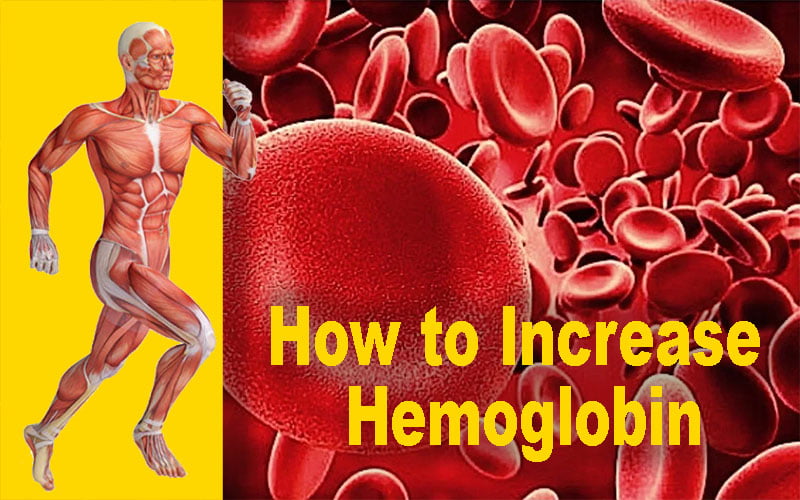
Hemoglobin plays a crucial role in carrying oxygen throughout our bodies. It is an iron-rich protein found in red blood cells, responsible for transporting oxygen from the lungs to all the tissues and organs in our body. Maintaining healthy hemoglobin levels is essential for overall well-being and optimal functioning. In this article, we will explore various strategies and lifestyle changes that can help increase hemoglobin levels naturally and effectively.
Before diving into the ways to increase hemoglobin, let’s understand its role and how it works. Hemoglobin binds to oxygen in the lungs and forms a compound called oxyhemoglobin. This oxyhemoglobin then travels through the bloodstream, releasing oxygen to body tissues in need. In return, it picks up carbon dioxide, a waste product, and transports it back to the lungs for exhalation. This continuous cycle of oxygen and carbon dioxide exchange ensures the body’s vital organs and muscles receive the oxygen they require for proper functioning.
It’s crucial to recognize the signs of low hemoglobin levels. Common symptoms include:
If you experience any of these symptoms, it’s essential to consult a healthcare professional for proper diagnosis and guidance.
Several factors can influence hemoglobin levels in the body. Understanding these factors can help you make informed decisions in improving your hemoglobin levels. Some of the key factors include:
Now that we understand the importance of hemoglobin and the factors influencing its levels, let’s explore effective ways to increase hemoglobin naturally:
Increasing your intake of iron-rich foods is one of the most effective ways to boost hemoglobin levels. Incorporate foods like:
By including these foods in your diet, you provide your body with the necessary building blocks for hemoglobin production.
To enhance iron absorption, pair iron-rich foods with those high in vitamin C. Citrus fruits, bell peppers, and broccoli are excellent sources of vitamin C. The vitamin C aids in converting plant-based iron into a more absorbable form.
Certain substances can hinder iron absorption. These include tannins found in tea and coffee, calcium-rich foods, and high-fiber foods. Avoid consuming these along with iron-rich meals.
Using cast iron cookware can increase the iron content in your meals. When cooking acidic foods like tomatoes or sauces, a small amount of iron leaches into the food, contributing to your iron intake.
Ensure your diet includes foods rich in vitamin B12 and folate. These vitamins are essential for red blood cell production. Sources include:
In some cases, dietary changes may not be sufficient to increase hemoglobin levels. Consult with your healthcare provider to determine if iron supplements are necessary and safe for you.
Engaging in regular physical activity stimulates the production of red blood cells, including hemoglobin. Incorporate aerobic exercises like walking, jogging, or swimming into your routine.
Staying hydrated is vital for maintaining optimal blood volume and circulation. Aim to drink plenty of water throughout the day.
Chronic stress can negatively impact various bodily functions, including hemoglobin production. Practice relaxation techniques such as meditation, yoga, or deep breathing.
Adequate sleep is crucial for overall health, including proper blood production. Strive to get 7-9 hours of quality sleep each night.
Some blood types have higher or lower hemoglobin levels. Understanding your blood type can provide valuable insights into your health.
If you have a history of low hemoglobin or anemia, monitor your iron levels regularly with your healthcare provider.
Both smoking and excessive alcohol consumption can inhibit iron absorption and negatively impact overall health.
Certain herbal supplements, like nettle leaf or dandelion root, are believed to support hemoglobin production. Consult a healthcare professional before using any herbal remedies.
Include foods like beets, pomegranates, and carrots in your diet. These foods are known to boost blood production.
Create delicious smoothies with ingredients like spinach, bananas, and chia seeds for a nutrient-packed and iron-rich beverage.
Copper is essential for iron metabolism. Consume copper-rich foods like nuts, seeds, and dark chocolate.
Tea and coffee can hinder iron absorption. Limit their consumption, especially during meals.
Maintaining a healthy liver is essential for proper iron storage and utilization. Avoid excessive alcohol and fatty foods that can harm the liver.
For women with heavy menstrual periods, managing menstrual blood loss is crucial for maintaining hemoglobin levels. Talk to your healthcare provider about possible solutions.
If you boil vegetables, try using the cooking water in soups or stews to retain any lost nutrients, including iron.
Spinach is a versatile leafy green that can be added to various dishes to increase iron intake.
Blackstrap molasses is an excellent source of iron and can be incorporated into baking and cooking.
Vitamin A is essential for healthy blood and can be found in foods like sweet potatoes and carrots.
Consuming foods rich in both iron and vitamin B12, like beef or fish, can enhance their absorption and utilization in the body.
A: Yes, you can increase hemoglobin levels through dietary changes, lifestyle adjustments, and consuming iron-rich foods.
A: Yes, iron absorption from plant-based sources may be lower compared to animal-based sources due to the presence of certain compounds that hinder absorption.
A: Yes, chronic stress can lead to hormonal imbalances and impact hemoglobin production.
A: The time it takes to increase hemoglobin levels can vary from person to person, but consistent dietary changes and lifestyle improvements can lead to noticeable changes within a few weeks to a few months.
A: Iron supplements can cause side effects such as constipation, nausea, and stomach upset. It’s essential to follow the recommended dosage and consult with a healthcare professional before taking supplements.
A: Temporary changes in hemoglobin levels can occur after donating blood, but the body typically replenishes the lost red blood cells over time.
Maintaining healthy hemoglobin levels is crucial for overall well-being and vitality. By making conscious dietary choices, incorporating iron-rich foods, and adopting a healthy lifestyle, you can naturally boost your hemoglobin levels and improve your overall health. Remember to consult with a healthcare professional before making any significant dietary or lifestyle changes, especially if you have a medical condition or are taking medications.
Recommended other topics: Which Vitamin Deficiency Causes Hair Loss?










© InfoDoot. All Rights Reserved.